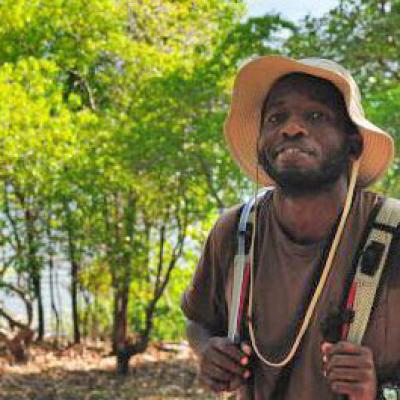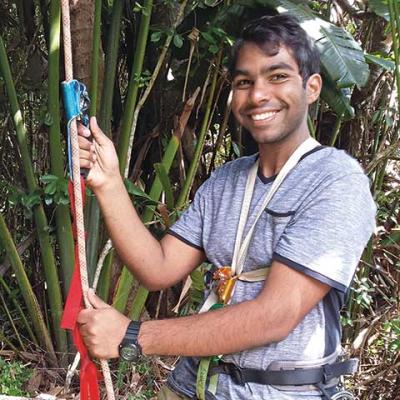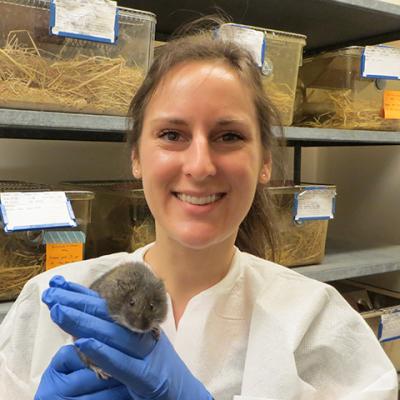
Master of Conservation Biology
Overview
Master the science of conservation, ecology and biodiversity to find effective solutions in securing the world's biological diversity.
Learn from some of the world’s leading conservation biology researchers and have access to UQ's renowned facilities, including those in the Centre for Biodiversity and Conservation Science and the Centre for Marine Science.
Deepen your understanding of all aspects of biodiversity and conservation, environmental philosophy, national and international conservation policy, and systematic conservation decision-making processes.
In addition to advanced-level coursework, you'll complete a variety of fieldwork teaching at unique sites, such as subtropical rainforests, national parks, and UQ’s research stations at Heron Island, Moreton Bay and Hidden Vale.
Discover how to use science to support conservation strategies and policies with a focus on the problems of restoring and maintaining viable populations of animal and plant species, and natural and managed ecosystems. You'll graduate ready to confront complex conservation problems.
This program is taught in an intensive mode that allows you to complete the equivalent of one-and-a-half academic years in just 12 months.
Program highlights
- Learn from UQ’s experts and industry leaders and apply these theories during interactive classes.
- Gain a comprehensive education in the ecosystems and evolutionary potential of the world's flora and fauna.
- Take advantage of opportunities for marine and terrestrial research and field- and lab-based learning.
- Access unique biodiversity hotspots and fascinating ecosystems, ranging from coral reefs to World Heritage rainforests.
How you'll learn
Your learning experiences are designed to best suit the learning outcomes of the courses you choose.
- Lectures
- Tutorials
- Research experience
- Laboratory work
- Fieldwork
What you'll study
At UQ, degrees are called 'programs' and subjects are called 'courses'. Here's a sample of the courses you could study in this program:
- Conservation in Context
- Conservation & Wildlife Biology
- Sampling Design and Analysis in Conservation Science
- Environmental Philosophy
Career possibilities
Postgraduate study can take you anywhere. Here are some of the careers you could be on your way to:
- Endangered species ecologist
- Biodiversity educator
- National parks and wildlife officer
- Natural resources manager
- Policy developer
- Agribusiness consultant
- Zoologist
- Bush regeneration consultant
- Ecotourism manager
- Environment and sustainability consultant
Average annual salary range
Ecologist
seek.com.au
Average annual salary range
Zoologist
seek.com.au
Events
See all events
29 June
Queensland Biology Winter School, Year 12

1 July
International Baccalaureate Research Skills Program
Stories
See all stories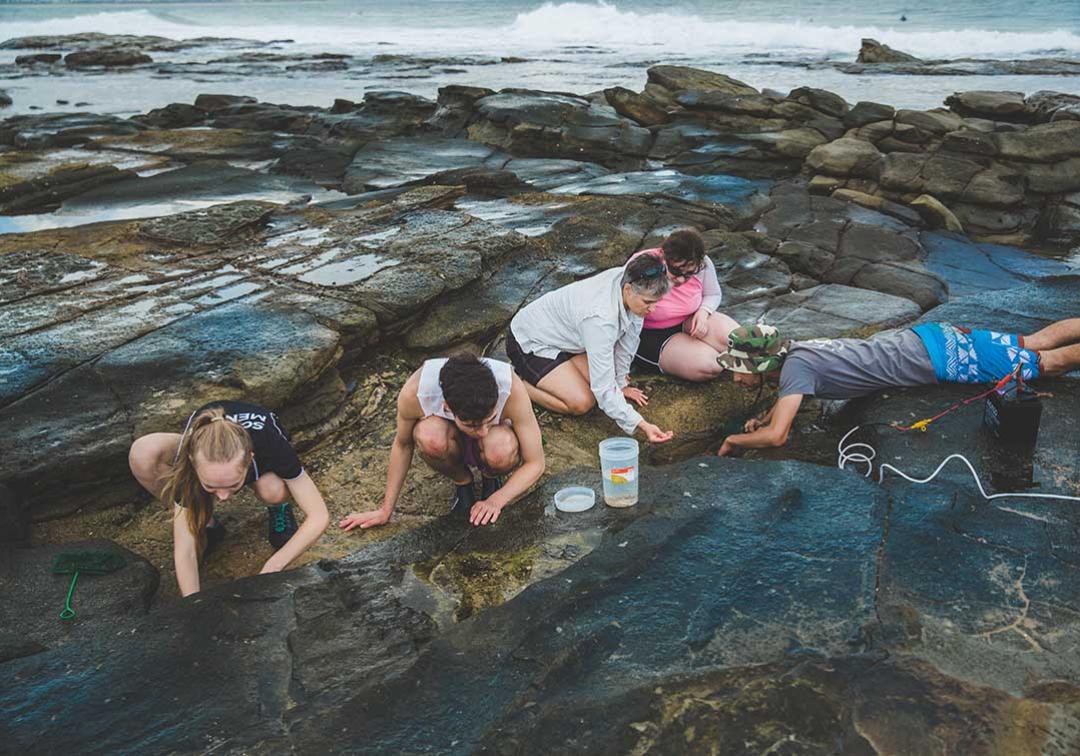
Study tips
Study environmental conservation as a postgrad at UQ
5-minute read
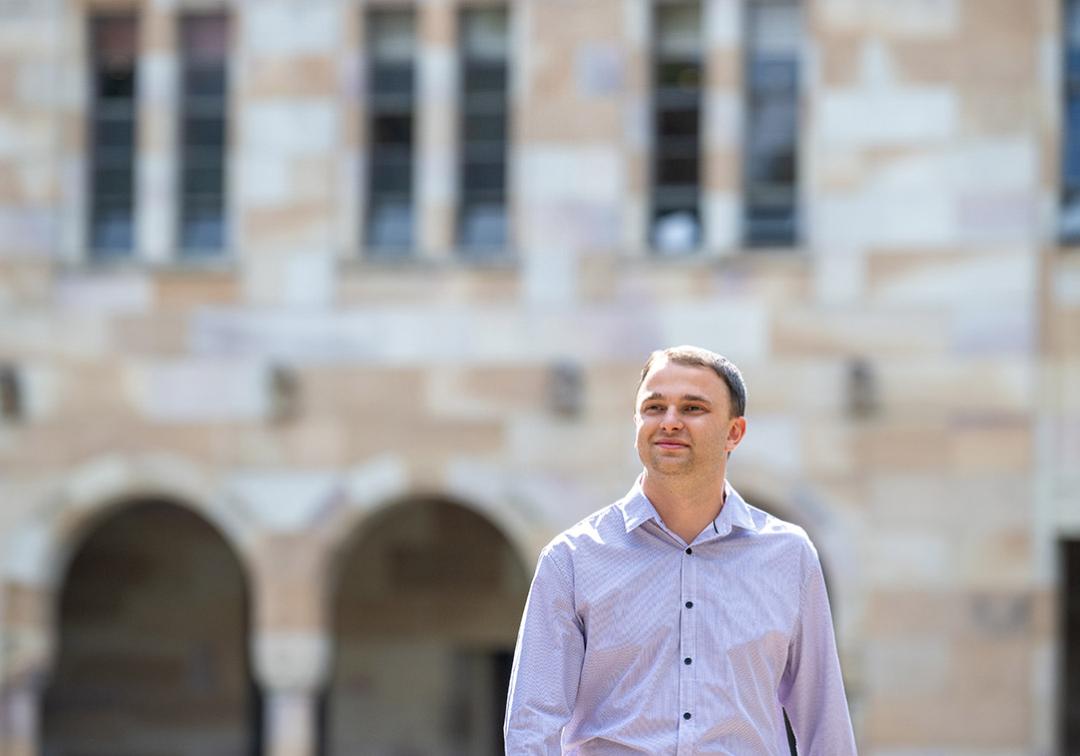
Uni life
What’s it like to study agriculture, environment and sustainability as a postgraduate?
6-minute read

Study tips
Why choose UQ for environmental studies?
6-minute read
Stories
See all stories
Study tips
Study environmental conservation as a postgrad at UQ
5-minute read

Uni life
What’s it like to study agriculture, environment and sustainability as a postgraduate?
6-minute read

Study tips
Why choose UQ for environmental studies?
6-minute read
Entry requirements
Entry requirements
To be eligible for entry, you'll need:
- a bachelor's degree (or equivalent) in a relevant discipline (see below), or
- a graduate certificate in conservation biology.
- a bachelor's degree (or equivalent) in a relevant discipline (see below), or
- a graduate certificate in conservation biology.
Relevant disciplines for previous qualifications
Relevant disciplines include botany, conservation, ecology, environmental studies, evolution, mathematics or statistics, marine science, and zoology. Advice on other relevant disciplines is available from the Faculty by contacting enquire@science.uq.edu.au.
Related programs
Depending on your previous qualifications and current goals, you might want to consider
one of these related programs:
English language requirements
IELTS overall 6.5; reading 6; writing 6; speaking 6; listening 6. For other English Language Proficiency Tests and Scores approved for UQ
TOEFL iBT (including Paper Edition) - Overall 87, listening 19, reading 19, writing 21 and speaking 19.
PTE Academic - Overall Score of 64 and 60 in all sub bands.
BE - A minimum overall grade of 4 plus a minimum grade of C in all macro skills.
CES - Overall 176 and 169 in all sub bands.
OET is not accepted.
There are other ways to meet the English language requirements. For some programs, additional conditions apply.
Student visas
International students who are accepted into full-time study in the Master of Conservation Biology are eligible to apply for an Australian student visa (subclass 500).
There are a number of requirements you must satisfy before a visa is granted, including the Genuine Student (GS) requirement.
Additional application information
Additional application information
Fees and Scholarships
Indicative annual fee
Approximate yearly cost of full-time tuition (16 units). This program has a different study load so actual fees may be higher or lower. Check the courses and program structure for more details. Fees are reviewed each year and may increase.
$10,330
2025
Approximate yearly cost of full-time tuition (24 units). Your fees will vary according to your study load. Check the courses and program structure for more details. Fees are reviewed each year and may increase.
AUD $80,640
2025
Additional costs
- This program includes one or more compulsory field trip courses that may incur additional costs. Please check the course descriptions for more information.
Government assistance
Financial aid
As an international student, you might be eligible for financial aid – either from your home country, or from the Australian Government.
HECS-HELP
Domestic places in the Master of Conservation Biology are Commonwealth supported, as long as you meet all Commonwealth supported place eligibility requirements.
This means the cost of your education is shared between you and the Australian Government. Instead of tuition fees, Commonwealth supported students pay what are called student contribution amounts.
If you have a Commonwealth supported place, you may also be eligible for HECS-HELP. This is an Australian Government loan scheme to assist eligible students with the cost of their student contribution amounts.
Centrelink support
The Australian Government has approved this master's program for income support payments to be made to eligible students.
Scholarships
You may be eligible for more than 100 scholarships, including:
How to apply
Applying online
All international applications should be submitted to UQ. If you prefer, you can use an approved UQ agent near you.
The program code for the Master of Conservation Biology is 5551.
Applying online
All domestic applications should be submitted to UQ.
The program code for the Master of Conservation Biology is 5551.
Important dates
The closing date for this program is:
- To commence study in semester 2 - April 1 of the year of commencement.
- To commence study in Summer - September 30 of the year of commencement.
Visa processing times vary. Apply and accept your offer as early as you can.
To learn more about UQ dates, including semester start dates, view the Academic Calendar.
Important dates
The closing date for this program is:
- To commence study in semester 2 - April 1 of the year of commencement.
- To commence study in Summer - September 30 of the year of commencement.
To learn more about UQ dates, including semester start dates, view the Academic Calendar.
Aboriginal and Torres Strait Islander applicants
For support with applying – or if you have any questions about university life – get in touch with our Aboriginal and Torres Strait Islander Studies (ATSIS) Unit.
Explore other programs
Express yourself. And your interest.
They say choosing a degree is hard, which is why we've made it easy. Register your interest and we'll send you everything you need to know about applying to UQ.



